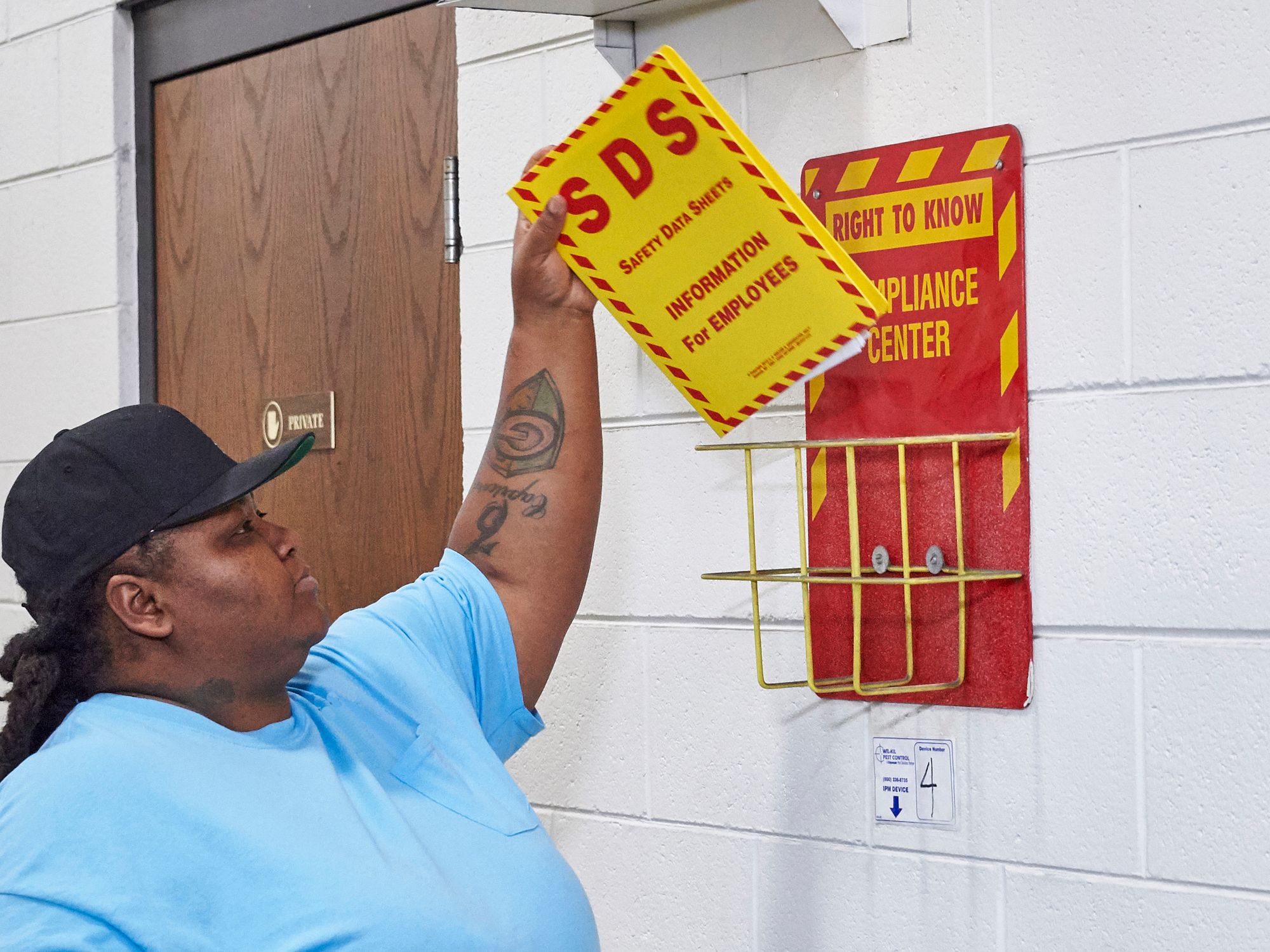Readily accessible

- Safety data sheets must be readily accessible to all workers during each shift.
- Hard copies of safety data sheets must be available in case of medical emergency.
The Occupational Safety and Health Administration (OSHA) requires that safety data sheets (SDSs) be “readily accessible” to all affected workers during each work shift when they are in their work area. If any barriers to immediate access to SDSs exist, then the employer is not complying with the HazCom standard. Factors to consider include:
- Must employees ask a supervisor or other management representative for the SDS?
- Can the employees access the SDSs during each work shift and in each work area?
- Have employees been trained on how to access SDSs and where they are kept?
- Do employees know who they can go to if they have questions?
If the employer is maintaining the SDSs on a company website or with an off-site/web-based SDS service provider that provides them electronically, they must ensure that:
- All employers have adequate access, with no restrictions;
- There is a backup procedure or system in place in case the system is not functioning;
- Employees are trained on how to access the SDSs both on the computer and the backup system, and;
- Employees can receive a hard copy if desired and in cases of emergency. It is not acceptable to only transmit the information verbally.
In the event of a medical emergency, hard copy SDSs must be immediately available to medical personnel. There must be an adequate back-up system for rapid access to SDSs in the event of power outages, equipment failures, or other system failure.
